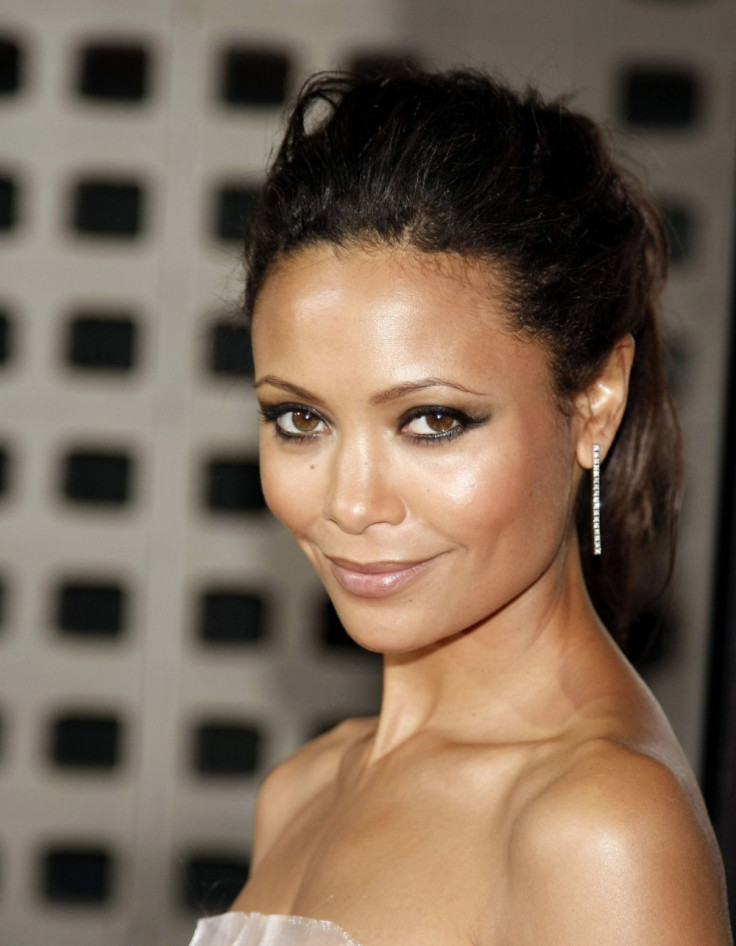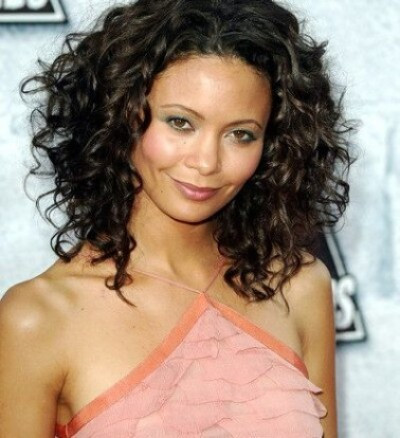Thandie Newton says that she was singled out at school for having Afro hair

Thandie Newton has claimed that her old school wouldn't let her have her photograph taken because of her natural Afro hair.
The British actress, who inherited Afro hair from her Zimbabwean mother revealed how the nuns who ran her school in Cornwall, back in the 1970's singled her out for looking different.
In a recent interview with the Sunday Telegraph newspaper, she said: "My mum braided my hair - for her it was the neatest, prettiest style, the equivalent of having your hair freshly cut and styled.
"I went to the best school in town, which was run by nuns, and they wouldn't let me have my photo taken because of my hair.
"I think they thought it was a bit 'ghetto', though we didn't really know what that meant. It was absolutely not 'ghetto'. The next day my mum went into the school. I don't know what was said, but I had my photo taken."
Although the 42-year-old beauty, has now grown to love her natural curls, she admits she began chemically straightening it as soon as she was old enough and continued to do so for many years because people preferred it.
The former Olay spokeswomen explained: "There were layers and layers of low self-esteem attached to these early experiences, and I continued to have very low self-esteem for years.
"So as soon as I could I had my hair professionally 'relaxed' with chemicals to make it 'normal', and it stayed straight until only a few years ago. It was how Hollywood wanted my hair too."
The Mission: Impossible II actress describes the turning point as being when she started going to London and was able to purchase make-up and hair products for her skin tone and hair texture.

"It had such an appeal for me because there are so many nationalities represented. The diversity is extraordinary. Suddenly I could buy foundations and concealers for my skin tone.
"London is a young, vibrant city, an amazingly multicultural melting-pot of people, and that's why people flock to it. It's a city I'm so proud of. But I was lucky to have access to such a multicultural place, something not everyone has".
Speaking on global perceptions of skin tone, she said: "The colour of your skin is tied to so many things, in some countries having lighter skin can give women the chance to have a life that is not just about servitude.
"Many women across Asia and Africa feel they need to use skin-lightening creams, but it's too easy to say that's a bad thing. I'm not saying it's right, but for some women changing the colour of your skin means you are able to get married to someone, you get things provided for you, you get to go to school.
"This is a sad fact that I hope will change with education and empowerment, but location is an important factor in women having the chance to make the choices for themselves, so no one can be naïve and think it's a choice based on simply wanting to have lighter skin."
However, the mother of three admitted that things are "finally changing" as there are plenty of women with darker skin who are being recognised and represented by brands.
"In a way I think we're doing them a favour by saying, 'Hello, we're around!' This is my world and my children's world, and I want my children to be able to go into a shop and be represented."
© Copyright IBTimes 2025. All rights reserved.





















